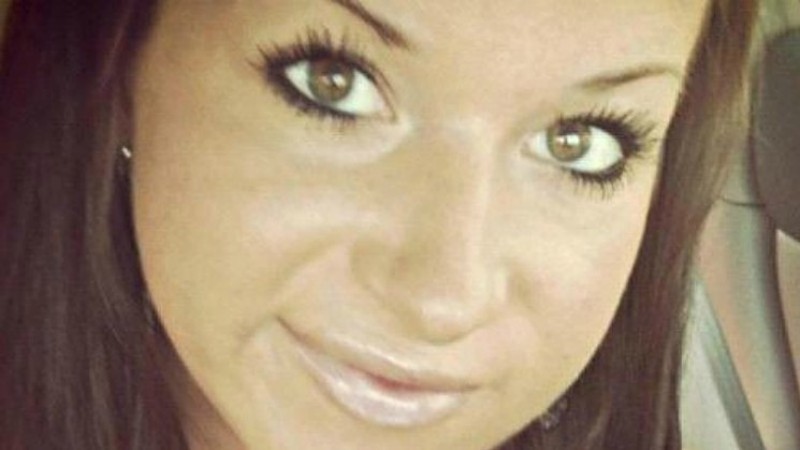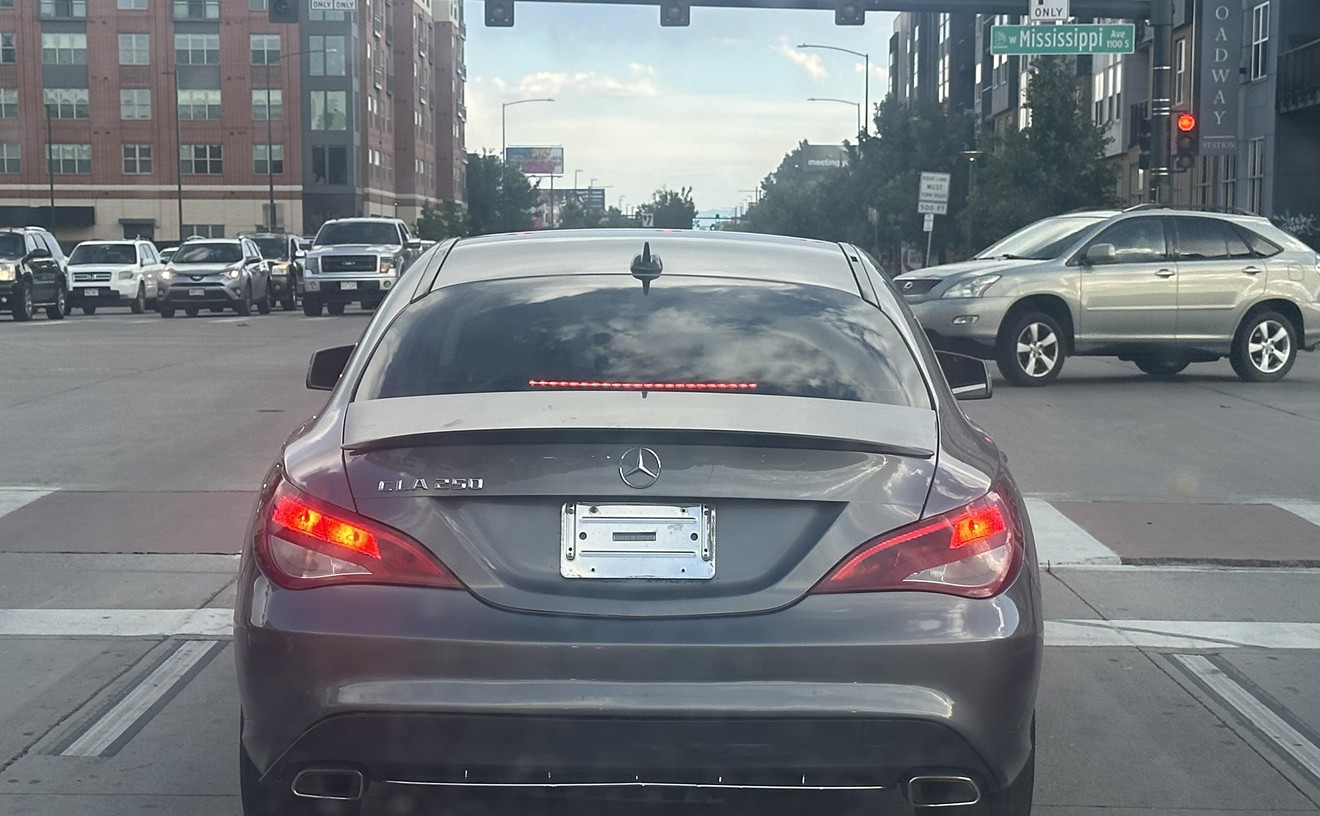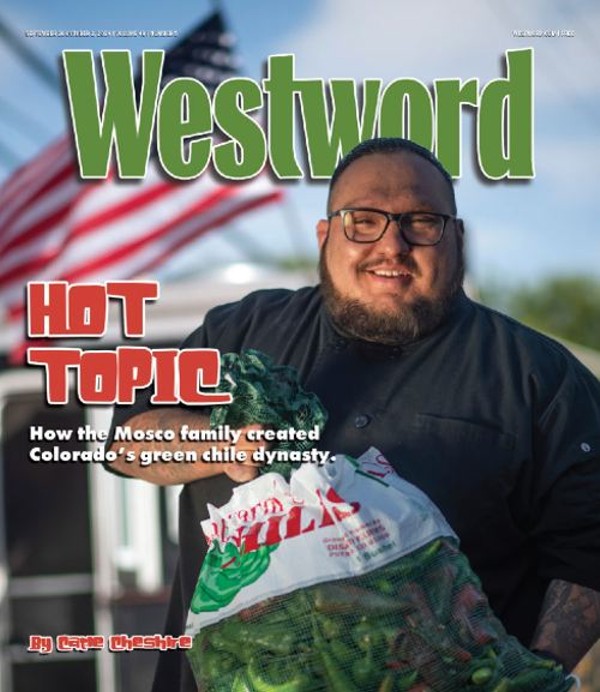Lucas was sentenced to life without the possibility of parole for killing Schelling, even though her body has never been found.
Two days after the sentencing, Laura Saxton, Schelling's mother, was driving back from Pueblo to her home in Yuma, Colorado. She was still reeling from the experience and struggling to put the trial — an arduous process that stretched out for more than a month because of a COVID-19 shutdown midway through it — into perspective. "Obviously, I'm thankful for the guilty verdict," Saxton said. "If he'd been acquitted, it would have been awful. I'd be feeling worse than I do now. But it's an empty verdict, because it didn't result in bringing Kelsie home."
Ten days after Schelling vanished, her car, a Chevrolet Cruze, was located in the parking lot of St. Mary-Corwin hospital in Pueblo. A month later, the Pueblo Police Department released photos showing shots of the car on February 5 and February 6, taken somewhere else — the parking lot of an area Walmart. The images depicted a male getting into the car and driving it away. Then, at an April 2013 news conference, Saxton revealed that Schelling had gotten confirmation of her pregnancy on the day she went missing; doctor's records confirmed that she was eight weeks along, with the presumed father being Lucas, who played basketball for Northeastern Junior College. According to Saxton, cell phone records showed that "Donthe asked Kelsie to come to Pueblo when she got off of work that night because he needed to speak with her in person. ... We know that Kelsie made it to Pueblo and did meet up with Donthe. No one has seen or heard from her since."
Despite this new information, little progress was made in the investigation until after an overhaul of the Pueblo Police Department's crimes-against-persons unit and the Colorado Bureau of Investigation's entry into the case. The backyard of Lucas's former residence, at 5113 Manor Ridge Drive in Pueblo, was excavated in April 2017, followed by another nearby dig and a fire investigated as possible arson — and that December, Lucas was arrested. But a series of postponements and deferrals slowed prosecution to a crawl even before the pandemic; the trial finally got under way this past January.
In order to observe the proceedings, Saxton rented a room at an extended-stay hotel in Pueblo. "I was not there for jury selection," she said as she drove back to Yuma, "but I was there from day one through to the end, except for the COVID delay." That was necessitated because someone who'd been in the courtroom tested positive for the novel coronavirus, and during the fourteen-day stoppage that began on February 10, "I went back home," Saxton explained. "But I was there every day otherwise — and I testified on the very first day, February 3."
That experience was "pretty awful," she continued. "I was on the stand for a long time, for most of the day, and it was grueling. The way the defense handled things was so much different from the way the prosecutors carried themselves. It didn't matter that I was Kelsie's mom and I was grieving. They didn't treat me with the respect or how you would expect to be treated after going through this for eight years. I found it very uncomfortable."
Some of that feeling stemmed from the defense's focus on the failure to find Schelling's remains, "whether she would walk in the door right then and, of course, the lack of actual physical evidence," Saxton explained. "They kept going back to that."

Laura Saxton speaking about her missing daughter in 2017.
Fox21 via YouTube
Closing arguments followed, after which the jurors began to deliberate — and Saxton figured it might take them a while to reach a conclusion. "I was prepared to camp out all week," she said. "I just had it in my mind that I was going to sit in the courthouse for the week, and if I had to come back the next week, that's what I was going to do."
Instead, the decision came down in fewer than three hours. "We were just kind of sitting around there, talking, when all of a sudden we were told the verdict was in," she recalled. "It was mass chaos, with everyone scrambling to get up and hurry and get down to the courthouse. In my mind, it was like, 'This is really, really good or it's really, really bad.'"
Soon, she was back in the courtroom — and Lucas was, too. "Because of the COVID, the courtroom was set up very strangely," Saxton explained. "The left half of the courtroom was filled with jurors socially distanced on benches, and then they had a few people actually in the jury box and at a table by the jury box with another couple of jurors. It left very little room for anybody else to be in the courtroom. Essentially, we were right behind Donthe. I saw the back of his head the whole time and never really got to see any emotion or anything. When I was on the stand, I tried to make eye contact with him, but he just showed nothing. There was no emotion or anything there."
In the end, the jurors sided with the prosecution. Two days later, Saxton said, "I'm still processing it, honestly. I still feel somewhat in shock. I'm kind of having trouble connecting with my emotions. I kind of feel lost, because this was a huge weight on my shoulders that I carried for eight years, and then, all of a sudden, part of it is gone. It's cut off in a matter of moments. Obviously, it was good to hear those words. It seemed like every word took forever to come out of the judge's mouth — that it was a first-degree murder and a guilty verdict. There was lots of tension and high emotion, and lots of tears when it was finally read."
Given that Lucas never took the stand at the trial and is now incarcerated, Saxton conceded, "I don't think he's going to tell where Kelsie is. For one thing, it's his last control over her — to not let her come home. And then, obviously, he has a lot of animosity toward me, and he knows how badly I've always wanted to bring her home. That's the saddest part of this. The whole thing is just bad, but we were more than willing to make a deal with him just to be able to get her back. But he gambled — and he gambled the wrong way."
A $50,000 reward for information about Schelling's whereabouts has been pending for years, and Saxton promised that the offer will remain in place for now: "Hopefully, it will be incentive enough for people to keep looking — but some people just want to look because they genuinely want to help. Not everyone is money-motivated."
She encouraged other parents or people with missing loved ones "to keep fighting no matter how much backlash you get. If you're not getting what you feel you should be getting from law enforcement or whatever, you have to keep pushing, because nobody's going to do it for you. I know not everybody has the ability to do that, and I didn't know that I did, either. This whole thing has been quite surprising for me. But it's for Kelsie, and that's how I've been able to keep going — because it's about her."













